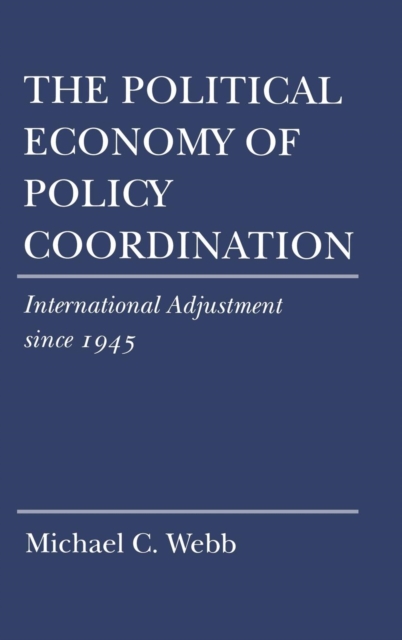
The Political Economy of Policy Coordination : International Adjustment since 1945 PDF
by Michael C. Webb
Part of the Cornell Studies in Political Economy series
Description
Michael C. Webb explores a central question about postwar economic history: how has the growth of international markets affected the coordination of economic policy among nations? His analysis overturns the popular assumption that policy coordination has eroded as American hegemony has receded. Instead, he argues that the growing mobility of capital forced governments to abandon the strategies they had used in the 1950s and 60s to insulate monetary and fiscal policies from international influences, and to move toward more direct coordination of central economic strategies.
Webb shows that since 1945 there has been a crucial shift in the pattern of international collaboration. He focuses on three types of adjustment policy: trade and capital controls, balance-of-payment lending and intervention in foreign-exchange markets, and monetary and fiscal policies. Noting that the first two types are no longer effective, he demonstrates that governments now rely more on monetary and fiscal policy coordination to regulate the global economy.
As the expansion of international finance created greater turbulence in the global economy in the 1980s, the liberal system of international trade threatened to collapse. Webb examines in particular how the United States, Japan, and Germany took unprecedented steps to coordinate monetary and fiscal policies in the late 1980s and early 1990s, although domestic political obstacles-not any decline in U.S. power-limited the impact of this policy coordination. He concludes by assessing the effectiveness of these attempts to reconcile the goal of a stronger liberal system of economic exchange with the desire to maintain national autonomy.
Information
-
Download - Immediately Available
- Format:PDF
- Pages:256 pages
- Publisher:Cornell University Press
- Publication Date:15/05/2019
- Category:
- ISBN:9781501745348
Information
-
Download - Immediately Available
- Format:PDF
- Pages:256 pages
- Publisher:Cornell University Press
- Publication Date:15/05/2019
- Category:
- ISBN:9781501745348










